‘We’ve been upfront, honest with France on submarines’: Peter Dutton
Amid accusations of lying, Defence Minister Peter Dutton insists Australia was honest about issues with French-designed submarines.
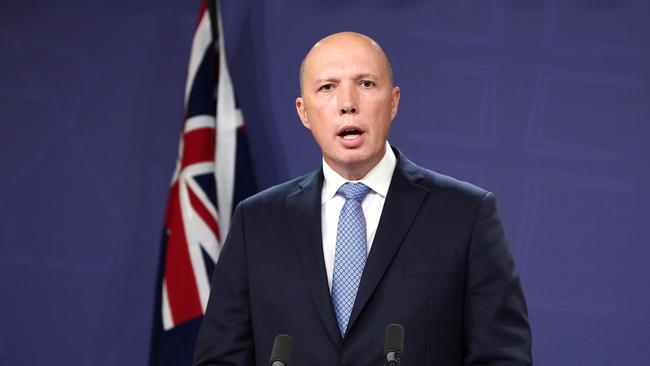
Defence Minister Peter Dutton says the Morrison government has been “upfront, open and honest” with its French counterparts, saying assertions to the contrary “defies … what’s on the public record”.
Anger at the decision to scrap the $96 billion French-designed Naval Group submarines intensified over the weekend, after the French government made the extraordinary decision to recall their ambassadors to Australia and the US.
But Mr Dutton said claims the federal government hadn’t been honest about their concerns about the submarines, which were over budget and behind schedule, before cancelling the contracts was incorrect.
“We can understand of course, the French are upset at the cancellation of a contract but in the end, our job is to act in our national interest,” Mr Dutton told Sky News on Sunday morning.
“Suggestions that the concerns hadn’t been flagged by the Australian government, just defy, franky, what’s on the public record and certainly what they’ve said publicly over a long period of time. The government has had those concerns, and we’ve expressed them.”
While the details were to be ironed out over the next “12 to 18 months”, Mr Dutton confirmed he was in discussions with the country’s trilateral strategic partners to provide a short-term solution, either through buying or leasing submarines, but he cautioned the process wasn’t as simple as buying a “submarine off the shelf”.
“The talk that you could just buy a nuclear powered submarine off the shelf, of course, is just not accurate or correct,” Mr Dutton told Sky News on Sunday morning.
Despite claims the French could have provided the nuclear technology for submarines, Mr Dutton said the lifespan of nuclear reactors in the US-provided subs was a “game changer”, as he conceded the project to build the nuclear-powered submarines wasn’t going to be “cheap”.
“Maintaining peace is not something that comes for free,” Mr Dutton said.
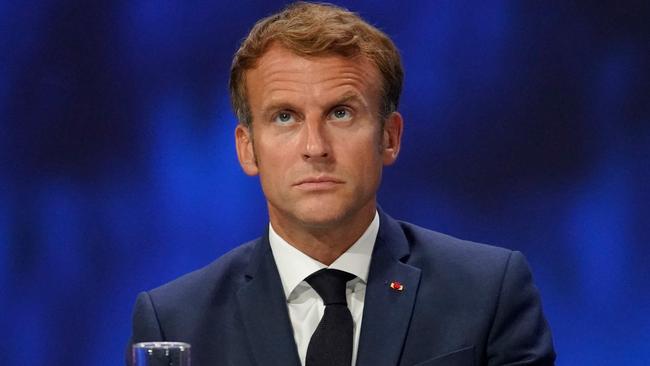
France informed on subs at ‘earliest available opportunity’
Finance Minister Simon Birmingham says the French government was informed about the decision to scrap the Naval Group deal before it was public and at the “earliest available opportunity”, as he declines to put a figure on building the nuclear-powered submarines.
“Of course there have been enormous sensitivities to get to the point of announcing that discussion,” Mr Birmingham told ABC’s Insiders on Sunday morning.
“Now, we’ve made it public at the earliest available opportunity. We informed the French government at the earliest available opportunity, before it became public.”
Mr Birmingham refused to put a figure on the cost of the nuclear-powered submarine fleet, saying he didn’t wasn’t to “shape public speculation”, but underlined his confidence the AUKUS alliance would allow the federal government to “extract the best possible arrangements”.
“We don’t have all of the final costs because we’re going through it,” he said.
France accuses Australia, US of ‘lying’
France has accused Australia and the United States of lying over a ruptured Australian contract to buy French submarines, saying a grave crisis was underway between the allies after Paris recalled its ambassadors.
President Emmanuel Macron on Friday ordered back the ambassadors to Canberra and Washington in an unprecedented move to signal his fury over Australia’s decision to break a deal for the French submarines in favour of American vessels.
Speaking to France 2 television, Foreign Minister Jean-Yves Le Drian gave no indication Paris was prepared to let the crisis die down, using distinctly undiplomatic language towards Australia, the United States and Britain which is also part of the three-way security pact.
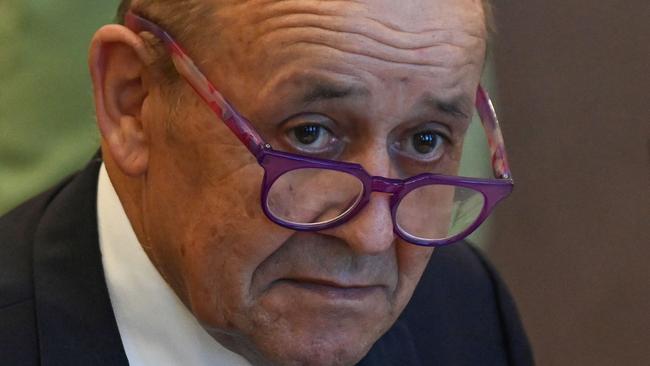
“There has been lying, duplicity, a major breach of trust and contempt,” Le Drian said. “This will not do.” He described the withdrawal of the ambassadors for the first time in the history of relations with the countries as a “very symbolic” act which aimed “to show how unhappy we are and that there is a serious crisis between us”.
‘The third wheel’
He also issued a stinging response to a question over why France had not recalled its ambassador to Britain, when London was also part of the security pact that led to the rupture of the contract.
“We have recalled our ambassadors to (Canberra and Washington) to re-evaluate the situation. With Britain there is no need. We know their constant opportunism. So there is no need to bring our ambassador back to explain,” he said.
Of London’s role in the pact under Prime Minister Boris Johnson, he added with derision: “Britain in this whole thing is a bit like the third wheel.” NATO would have to take account of what has happened as it reconsiders strategy at a summit in Madrid next year, he added.
France would make a priority now of developing a EU security strategy when it takes on the bloc’s presidency at the start of 2022, he said.
Admiral Rob Bauer, chair of NATO’s Military Committee, earlier played down the dangers, saying it was not likely to have an impact on “military cooperation” within the alliance.
France recalls ambassadors to US, Australia
Washington hopes to discuss its dispute with France over an aborted submarine contract with Canberra at the United Nations General Assembly next week, the State Department says.
In an unprecedented step, France on Friday recalled its ambassadors to the US and Australia in a ferocious row over the deal, which saw the Morrison government scrap a multi-billion dollar agreement to purchase French submarines in favour of US nuclear subs.
Annoucing the diplomatic recall, French Foreign Minister Jean-Yves Le Drian slammed the actions of the AUKUS partners overnight as “unacceptable behaviour”, prompting Australian counterpart Marise Payne to defend the decision in the national interest.
Washinton has also sought to calm the waters, with the Paris action revealing the extent of French anger against its allies.
“We hope to continue our discussion on this issue at the senior level in coming days, including at #UNGA next week,” US State Department spokesman Ned Price said in a statement on Twitter.
“We have been in close contact with our French allies. We understand their position.
“France is a vital partner & our oldest ally, and we place the highest value on our relationship.”
Mr Le Drian said in a statement that the decision was made to immediately recall the two French ambassadors due to “the exceptional seriousness of the announcements made on September 15 by Australia and the United States”.
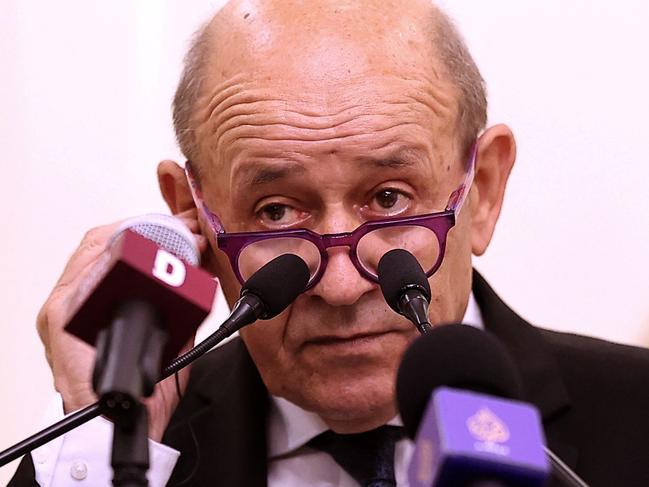
“The cancellation of the Attack class submarine program binding Australia and France since 2016, and the announcement of a new partnership with the United States meant to launch studies on a possible future cooperation on nuclear-powered submarines, constitute unacceptable behavior between allies and partners, whose consequences directly affect the vision we have of our alliances, of our partnerships and of the importance of the Indo-Pacific for Europe,” Mr Le Drian said.
US President Joe Biden announced the new Australia-US-Britain defence alliance on Wednesday, extending US nuclear submarine technology to Australia as well as cyber defence, applied artificial intelligence and undersea capabilities.
The move infuriated France, which lost a contract to supply conventional submarines to Australia that was worth $A50 billion when signed in 2016.
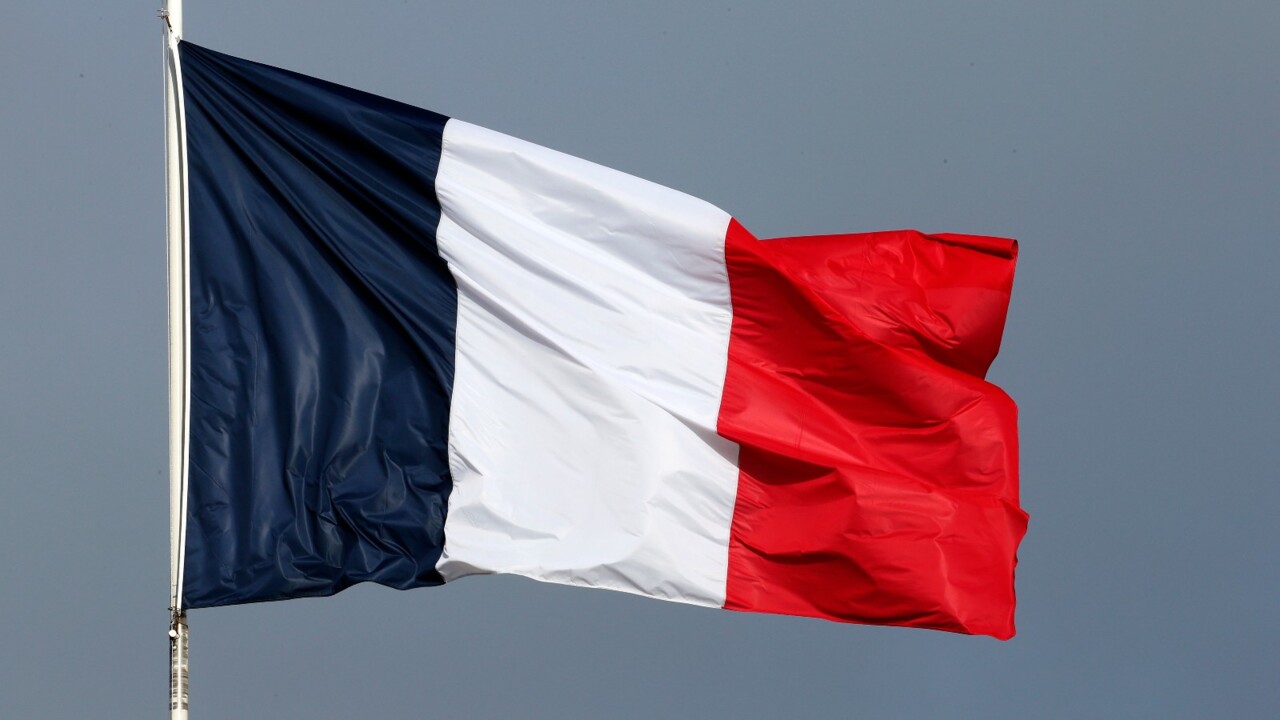
The French ambassador recalls from the United States and Australia, key allies of France, are unprecedented.
A spokesman for Australia’s Foreign Minister Marise Payne said the government “noted with regret” France’s decision.
“Australia understands France’s deep disappointment with our decision, which was taken in accordance with our clear and communicated national security interests,” the spokesman said.
“Australia values its relationship with France, which is an important partner and a vital contributor to stability, particularly in the Indo-Pacific. This will not change.”
“We look forward to engaging with France again on our many issues of shared interest, based on shared values.”
Minister Payne, in Washington for the 31st annual Australia-United States ministerial dialogue that produced a three way security pact between the US, UK and Australia, infuriating France, said the government would “continue to approach constructively and closely with our colleagues in France”.
Defence Minister Peter Dutton and Ms Payne were the guests of honour at a Australian embassy cocktail party to celebrate the 70th anniversary of the ANZUS treaty on Friday night, which was abuzz with senior diplomatic, military and political guests including the US Naval Secretary Carlos Del Toro, former Australian ambassadors Hockey and Thawley, former liberal leader Brendan Nelson, and former US ambassador John Berry.
The Foreign Minister earlier laid down the gauntlet to China in a forthright speech, accusing the communist nation of “creeping authoritarianism”, painting a grim future.
“We see escalating tensions over maritime and territorial claims, increasing coercion, including economic pressure, arbitrary detention, malicious cyber attacks, disinformation, and foreign interference,” she said.
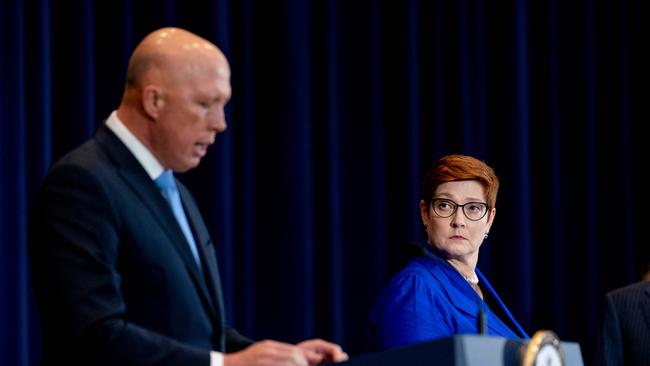
Ms Payne said Australia and the US would vigorously defend the “rules based global” order in the Indo Pacific region, accusing China of “putting pressure on the system of rules and norms” that had been “carefully built to keep states from transgressing”.
“We regard it as vital that we compete to preserve and shape the international order that has underpinned decades of stability and prosperity,” she added contrasting China which had “placed conditions on dialogue” with Australia, which was “always open to dialogue”.
The comments come in a momentous week for Australia, the US and UK, which signed a three-way security pact to shore up their defence in the Asia-pacific, a region increasingly in the shadow of China.
“If we are to preserve a region in which rights and sovereignty of all nations are respected then it’s up to each of us to continue ensuring that,” she added.
“Might does not make right … for our part Australia will consistently respond to malicious behaviour and defend our interests,” she added.
France on Thursday accused Australia of back-stabbing and Washington of Donald Trump-era behaviour over the submarines deal.
“It’s really a stab in the back,” Le Drian said Thursday. “We had established a relationship of trust with Australia, this trust has been betrayed”.
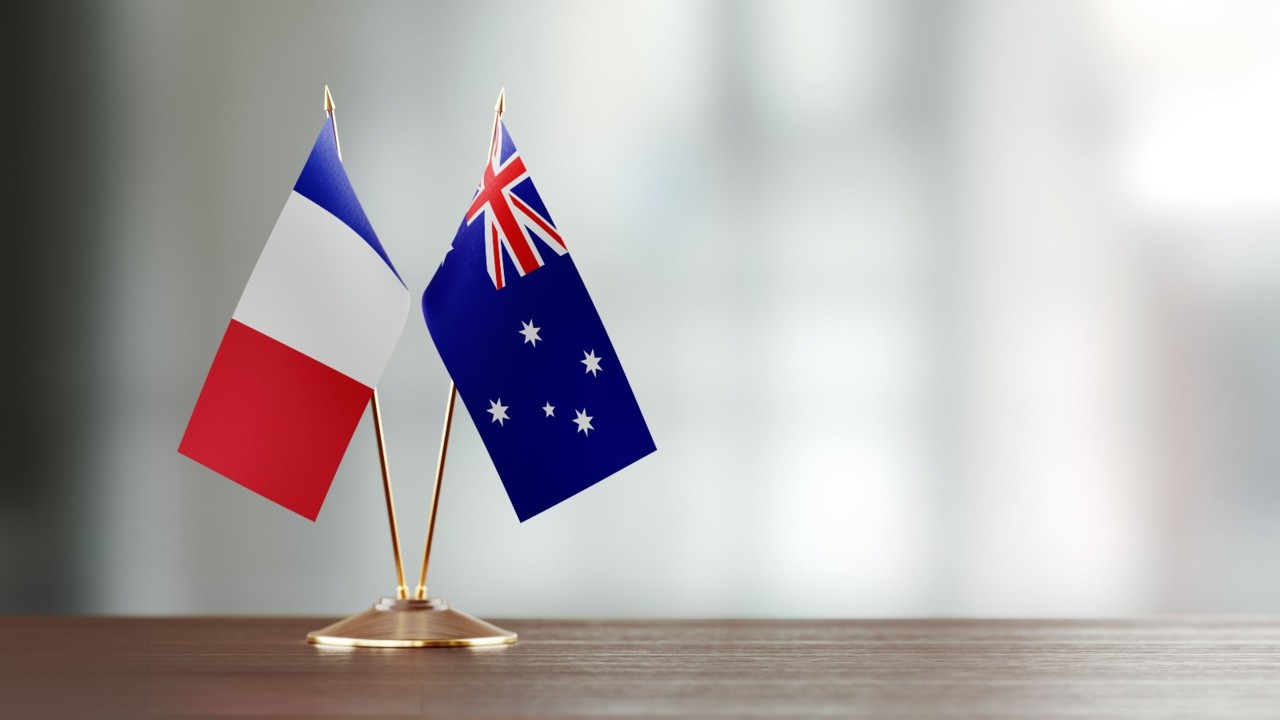
France has also called off a gala at its ambassador’s house in Washington scheduled for Friday.
The event was supposed to celebrate the anniversary of a decisive naval battle in the American Revolution, in which France played a key role.
The White House this morning (AEST) expressed “regret” over the recall of France’s ambassador, but said that the United States would work to resolve the diplomatic row.
“We regret that they have taken this step, we will continue to be engaged in the coming days to resolve our differences, as we have done at other points over the course of our long alliance,” a White House official said, speaking on condition of anonymity.
With AFP

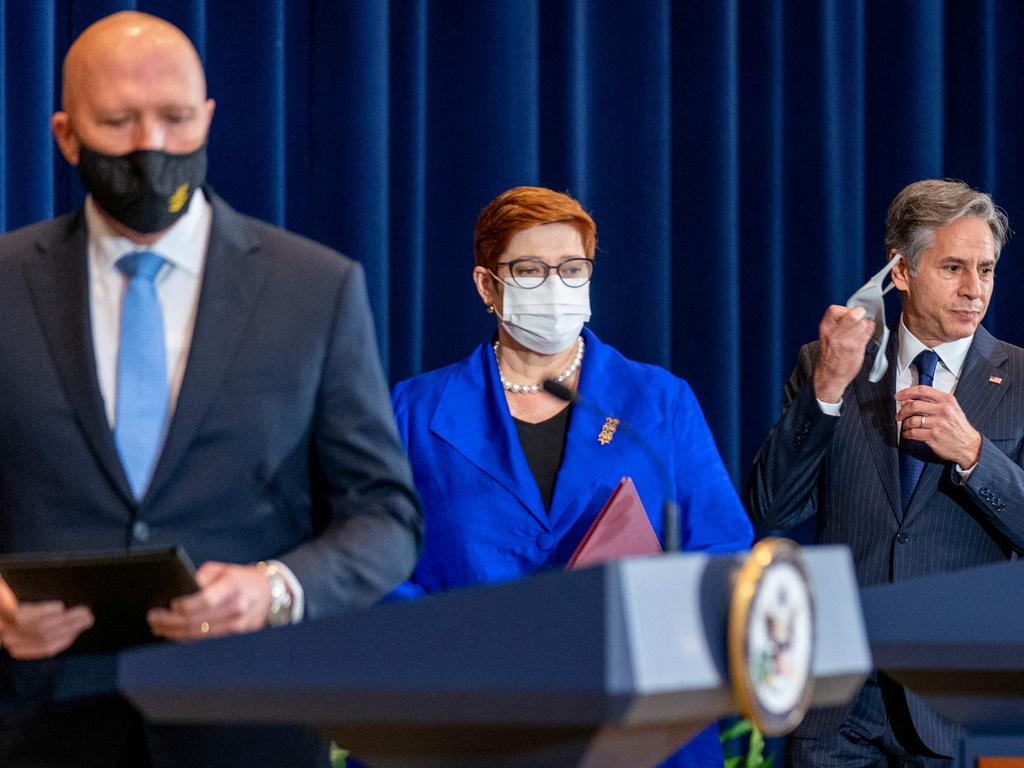
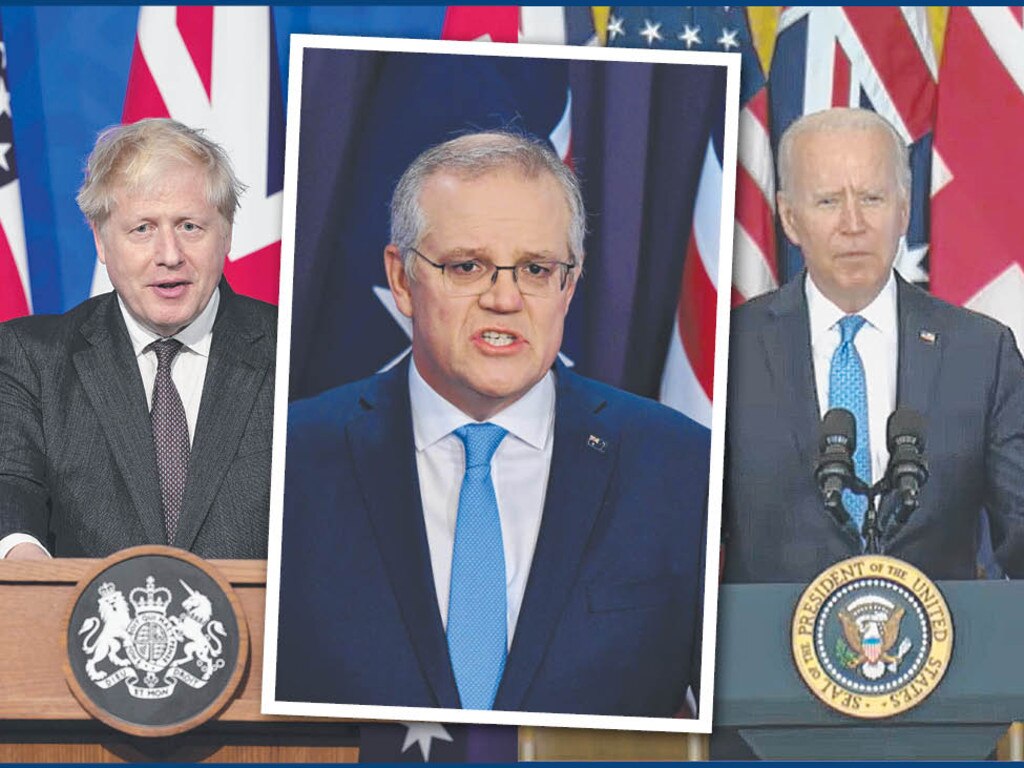

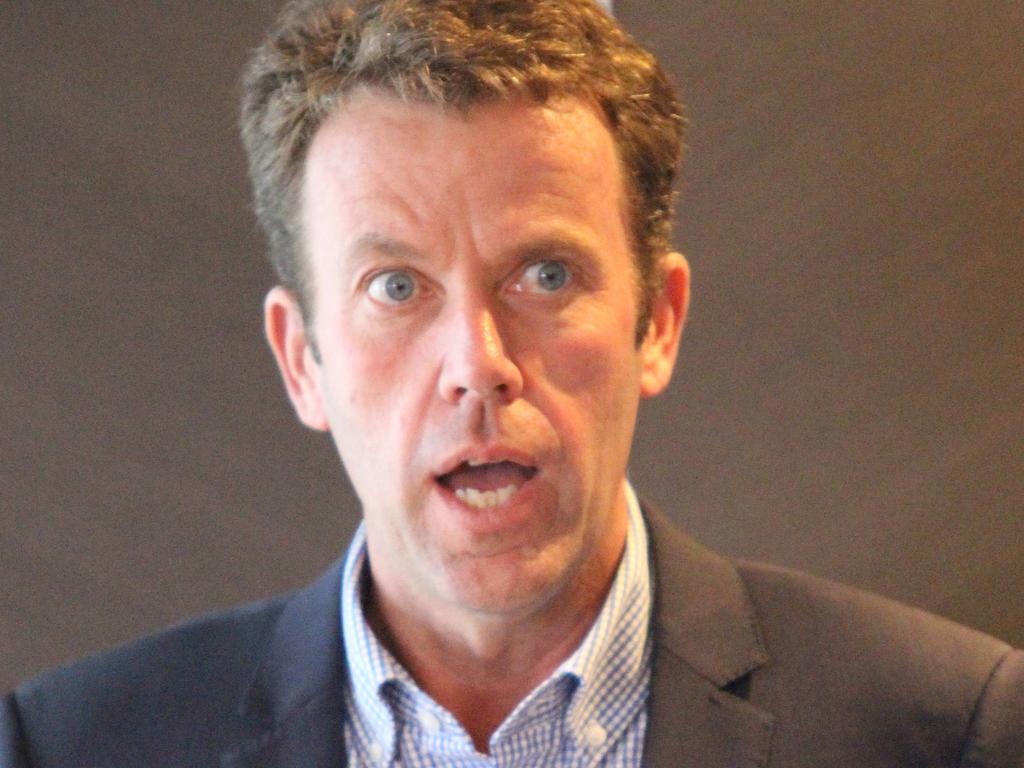
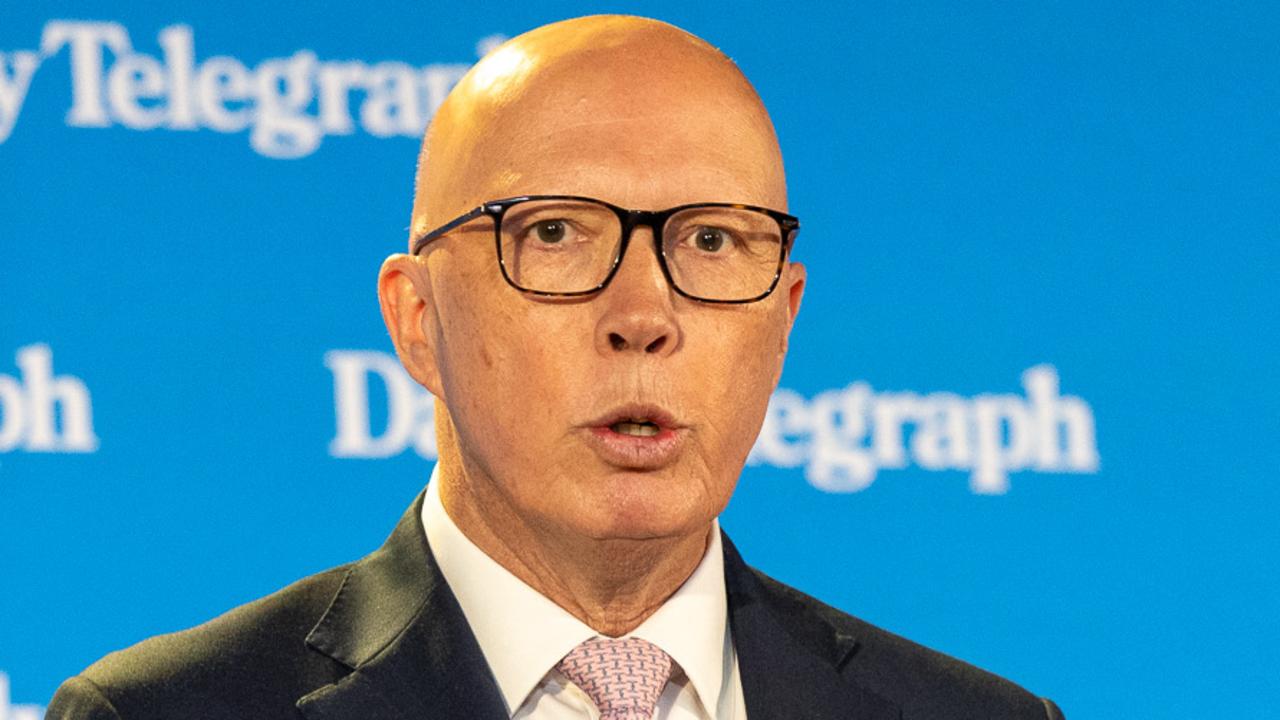

To join the conversation, please log in. Don't have an account? Register
Join the conversation, you are commenting as Logout